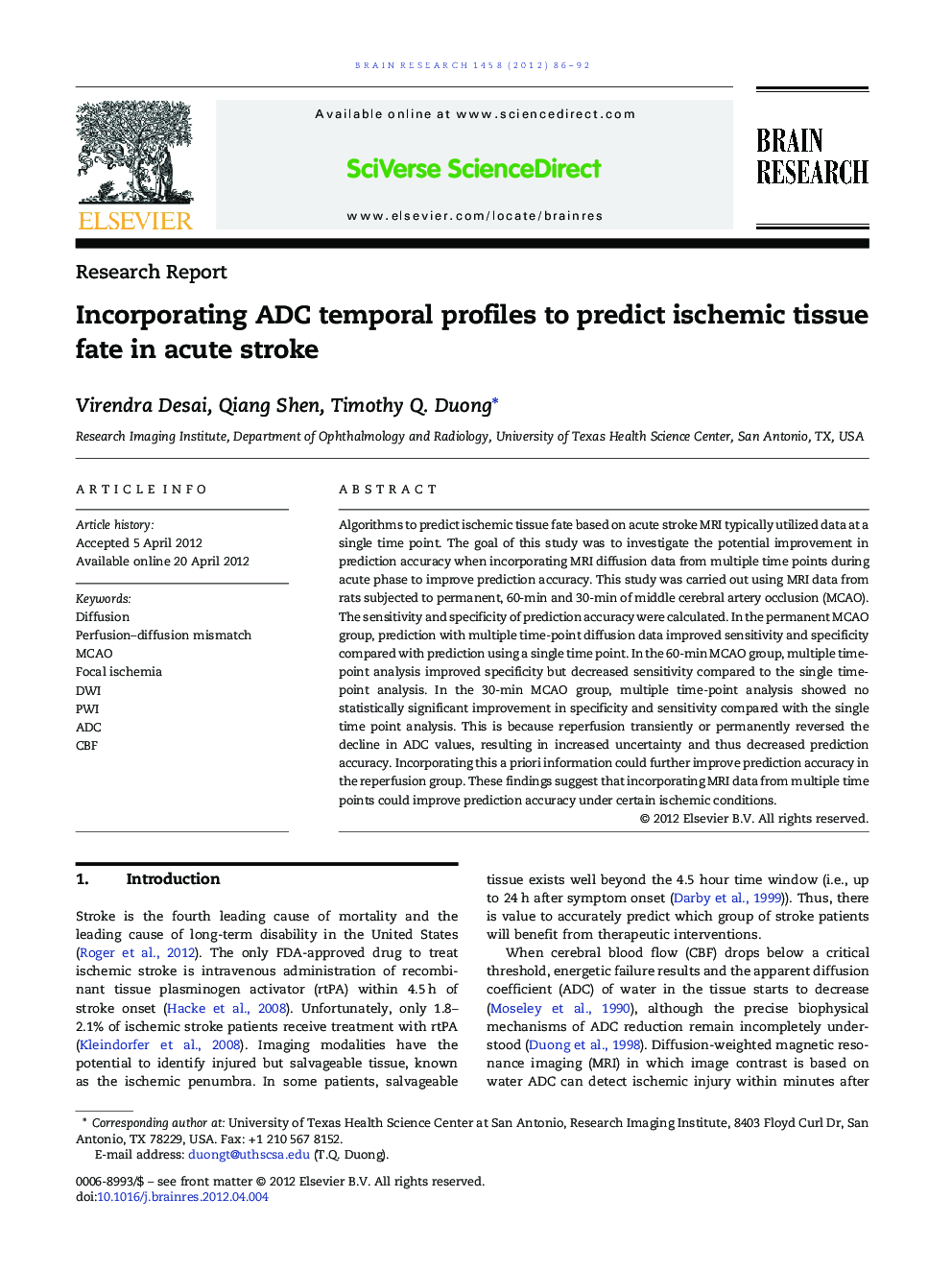| Article ID | Journal | Published Year | Pages | File Type |
|---|---|---|---|---|
| 4325233 | Brain Research | 2012 | 7 Pages |
Algorithms to predict ischemic tissue fate based on acute stroke MRI typically utilized data at a single time point. The goal of this study was to investigate the potential improvement in prediction accuracy when incorporating MRI diffusion data from multiple time points during acute phase to improve prediction accuracy. This study was carried out using MRI data from rats subjected to permanent, 60-min and 30-min of middle cerebral artery occlusion (MCAO). The sensitivity and specificity of prediction accuracy were calculated. In the permanent MCAO group, prediction with multiple time-point diffusion data improved sensitivity and specificity compared with prediction using a single time point. In the 60-min MCAO group, multiple time-point analysis improved specificity but decreased sensitivity compared to the single time-point analysis. In the 30-min MCAO group, multiple time-point analysis showed no statistically significant improvement in specificity and sensitivity compared with the single time point analysis. This is because reperfusion transiently or permanently reversed the decline in ADC values, resulting in increased uncertainty and thus decreased prediction accuracy. Incorporating this a priori information could further improve prediction accuracy in the reperfusion group. These findings suggest that incorporating MRI data from multiple time points could improve prediction accuracy under certain ischemic conditions.
► Multiple ADC time-point prediction improved accuracy in permanent stroke compared with single time-point prediction. ► Multiple ADC time-point analysis improved specificity but decreased sensitivity in the 60-min stroke group. ► Multiple time-point analysis showed no significant improvement in specificity and sensitivity in the 30-min MCAO group. ► Incorporating MRI data from multiple time points could improve prediction accuracy under certain ischemic conditions.
